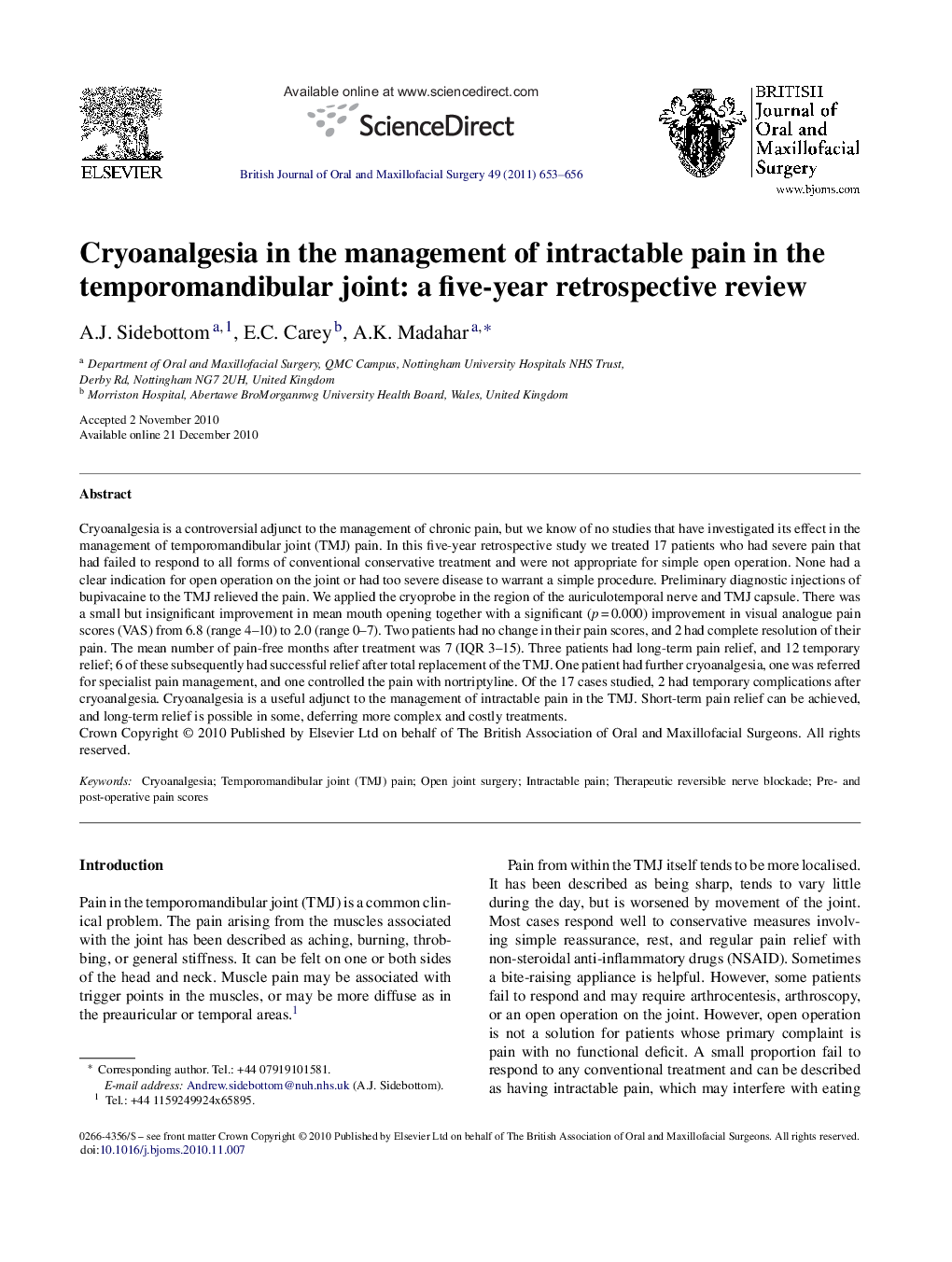| Article ID | Journal | Published Year | Pages | File Type |
|---|---|---|---|---|
| 3124522 | British Journal of Oral and Maxillofacial Surgery | 2011 | 4 Pages |
Cryoanalgesia is a controversial adjunct to the management of chronic pain, but we know of no studies that have investigated its effect in the management of temporomandibular joint (TMJ) pain. In this five-year retrospective study we treated 17 patients who had severe pain that had failed to respond to all forms of conventional conservative treatment and were not appropriate for simple open operation. None had a clear indication for open operation on the joint or had too severe disease to warrant a simple procedure. Preliminary diagnostic injections of bupivacaine to the TMJ relieved the pain. We applied the cryoprobe in the region of the auriculotemporal nerve and TMJ capsule. There was a small but insignificant improvement in mean mouth opening together with a significant (p = 0.000) improvement in visual analogue pain scores (VAS) from 6.8 (range 4–10) to 2.0 (range 0–7). Two patients had no change in their pain scores, and 2 had complete resolution of their pain. The mean number of pain-free months after treatment was 7 (IQR 3–15). Three patients had long-term pain relief, and 12 temporary relief; 6 of these subsequently had successful relief after total replacement of the TMJ. One patient had further cryoanalgesia, one was referred for specialist pain management, and one controlled the pain with nortriptyline. Of the 17 cases studied, 2 had temporary complications after cryoanalgesia. Cryoanalgesia is a useful adjunct to the management of intractable pain in the TMJ. Short-term pain relief can be achieved, and long-term relief is possible in some, deferring more complex and costly treatments.
